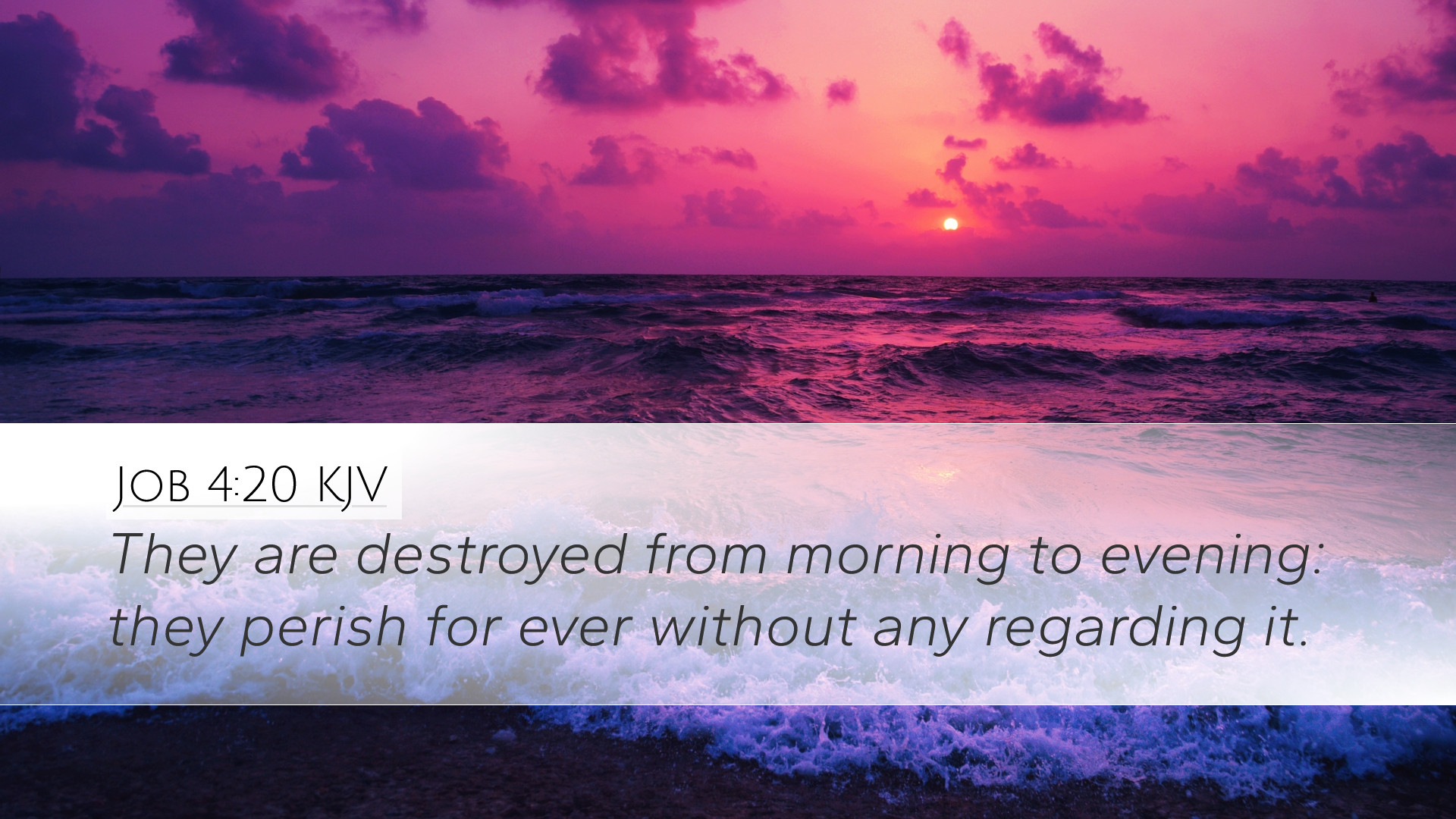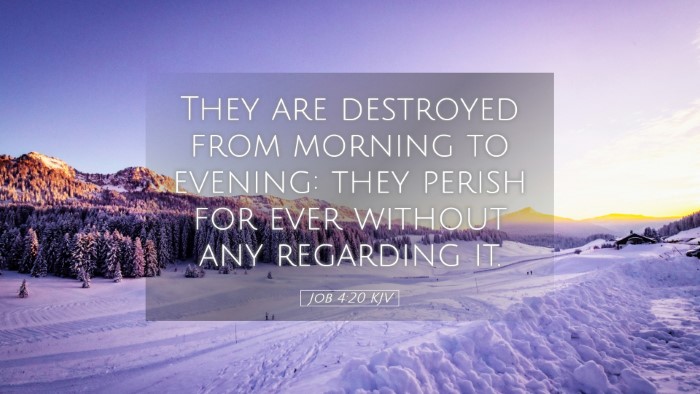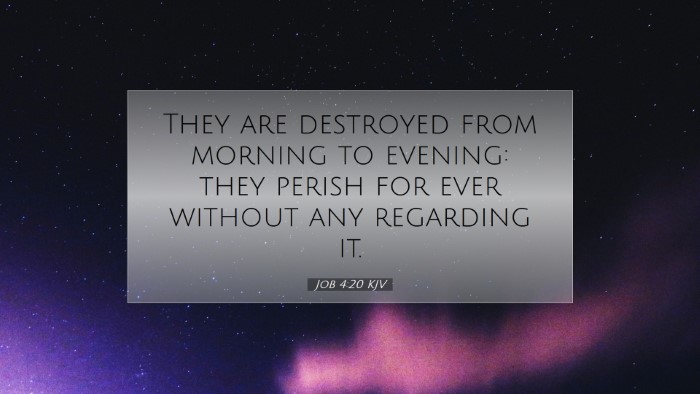Old Testament
Genesis Exodus Leviticus Numbers Deuteronomy Joshua Judges Ruth 1 Samuel 2 Samuel 1 Kings 2 Kings 1 Chronicles 2 Chronicles Ezra Nehemiah Esther Job Psalms Proverbs Ecclesiastes Song of Solomon Isaiah Jeremiah Lamentations Ezekiel Daniel Hosea Joel Amos Obadiah Jonah Micah Nahum Habakkuk Zephaniah Haggai Zechariah MalachiJob 4:20
Job 4:20 KJV
They are destroyed from morning to evening: they perish for ever without any regarding it.
Job 4:20 Bible Commentary
Commentary on Job 4:20
Verse: "They are destroyed from morning to evening; they perish for ever without any regarding it." (Job 4:20)
Introduction
The verse Job 4:20 holds profound implications regarding human mortality and the transient nature of life. In this, we find the voice of Eliphaz, one of Job’s friends, who seeks to provide insight based on his experiences and visions. This commentary delves into the perspectives offered by renowned biblical scholars such as Matthew Henry, Albert Barnes, and Adam Clarke to offer a comprehensive understanding of this poignant text.
Eliphaz's Perspective
Eliphaz, the Temanite, addresses Job in this chapter not merely as a friend but as a spiritual guide, attempting to elucidate the nature of divine justice through the lens of personal experience and mystical revelation.
Matthew Henry's Insights
According to Matthew Henry, Eliphaz emphasizes the brevity of life and the consequential fate of the wicked. He observes:
- Human beings are fragile, with their lives being like a fleeting shadow.
- Eliphaz suggests that calamities come swiftly, and men “perish for ever without any regarding it,” suggesting a lack of awareness concerning their spiritual condition.
- Henry ties this idea to the broader theme of retribution, where the suffering of the righteous is juxtaposed against the fate of the wicked.
Albert Barnes Commentary
Albert Barnes provides a critical exegesis of the text by highlighting the way in which Eliphaz treats the concept of divine punishment. He notes the following points:
- Barnes outlines Eliphaz’s argument that death is inevitable, impacting individuals irrespective of their status or righteousness.
- He explains that the imagery of destruction denotes complete annihilation, thereby inducing a somber reflection on mortality.
- In considering the cultural context, Barnes suggests that there’s an implicit critique of Job’s lamentation over his suffering, emphasizing that suffering does not necessarily result in a lack of divine favor.
Adam Clarke's Analysis
Adam Clarke offers a distinctive theological perspective, where he interprets the verse as a portrayal of the fleeting nature of life:
- Clarke points out the assertion of life’s unpredictability, where the morning represents the beginning of existence, and evening symbolizes its end.
- He elaborates on the consequences of ignoring divine warnings, suggesting that those who do not regard God’s presence in their lives face inevitable destruction.
- This emphasis on awareness and recognition of God’s sovereignty reinforces the moral imperative to live with mindfulness of divine judgment.
Theological Implications
The reflections on Job 4:20 from these scholars coalesce around the broader biblical themes of justice, mortality, and the existential plight of humanity:
- Mortality: The shared understanding across all commentaries is that life is ephemeral, prompting urgent self-examination.
- Divine Justice: Eliphaz presents a challenge to Job, positing that suffering can be a consequence of divine retribution, a point debated throughout the book.
- Human Awareness: The notion that many perish “without any regarding it” underscores the spiritual apathy that can permeate human existence, calling believers to heed God’s voice.
Conclusion
Job 4:20 serves as a sobering reminder about the precariousness of life and the inevitability of death. Eliphaz's assertion, framed within a context of divine justice and human recognition of God's relationship to suffering, encourages congregants and scholars alike to reflect on the weight of their moral and spiritual choices. The combined insights from Matthew Henry, Albert Barnes, and Adam Clarke offer a rich tapestry of thought, providing depth for pastors and theologians in preaching and understanding this complex text.
As the Church endeavors to navigate the challenges of life and the questions surrounding suffering and divine justice, Job 4:20 remains a potent reminder of our temporal existence and the call to live with intentionality before our Creator.


